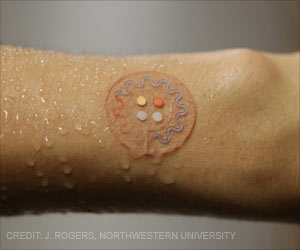Discover how dehydration exacerbates joint pain and learn why staying hydrated is crucial for optimal joint health.
- Dehydration reduces synovial fluid, leading to increased friction and joint stiffness
- Chronic inflammation from dehydration exacerbates joint pain, especially in conditions like arthritis
- Proper hydration and monitoring fluid intake are key to preventing dehydration-related joint issues
Dehydration and Joint Pain: How Your Hydration is Affecting Joint Health
Go to source).
Why Dehydration Increases Joint Pain?
1. Reduced Synovial Fluid Production:Synovial fluid acts as a lubricant within joint cavities, ensuring smooth movement between bones. When the body is adequately hydrated, it can produce sufficient amounts of synovial fluid to maintain joint function.
Dehydration can lead to increased joint pain. #hydrationmatters #jointhealth #medindia’
2. Increased Inflammation:
Dehydration can trigger systemic inflammation, a process where the body's immune system responds to various stimuli, such as injury or infection. When dehydrated, the body may produce higher levels of pro-inflammatory cytokines, signaling molecules that promote inflammation.
This chronic inflammation can affect the joints, leading to pain, swelling, and stiffness. In conditions like arthritis, where inflammation plays a significant role, dehydration can exacerbate symptoms and increase joint pain (2✔ ✔Trusted Source
Dehydration and Arthritis: How Not Drinking Water Affects Your Joints
Go to source).
3. Muscle Cramps and Fatigue:
Proper hydration is essential for muscle function, including muscle contraction and relaxation. When dehydrated, muscles may not receive an adequate supply of fluids and electrolytes, leading to muscle cramps and fatigue. These symptoms can affect the muscles surrounding the joints, causing them to become tense and tired.
As a result, the affected muscles may exert additional pressure on the joints, leading to discomfort and pain. Furthermore, tense muscles can contribute to joint misalignment, further aggravating joint pain.
Remedies and Preventive Measures
1. Stay Hydrated:Maintaining adequate hydration is key to preventing dehydration-related joint pain. Aim to drink 8-10 glasses of water daily, adjusting intake based on physical activity levels and climate.
2. Monitor Fluid Intake:
Be mindful of signs of dehydration such as dark urine, dry mouth, and dizziness. Drinking fluids regularly throughout the day can help maintain hydration levels and prevent joint pain.
Incorporate water-rich foods like fruits and vegetables into your diet. Foods such as cucumber, oranges, and watermelon not only contribute to overall hydration but also provide essential nutrients for joint health.
4. Limit Dehydrating Substances:
Reduce consumption of substances that can dehydrate the body, such as caffeine and alcohol. These can increase fluid loss and exacerbate dehydration, leading to joint pain.
5. Use Electrolyte Solutions:
In cases of excessive fluid loss due to intense physical activity or illness, electrolyte solutions can help restore fluid balance more effectively than water alone.
Dehydration can have significant effects on joint health, leading to increased pain and discomfort. By understanding the connection between dehydration and joint pain and implementing preventive measures such as staying hydrated, monitoring fluid intake, and consuming water-rich foods, individuals can protect the health of their joints and reduce the risk of pain and inflammation.
References:
- Dehydration and Joint Pain: How Your Hydration is Affecting Joint Health - (https://orthopedicassociates.org/dehydration-and-joint-pain-how-your-hydration-is-affecting-joint-health/)
- Dehydration and Arthritis: How Not Drinking Water Affects Your Joints - (https://creakyjoints.org/living-with-arthritis/dehydration-and-arthritis/)
Source-Medindia












